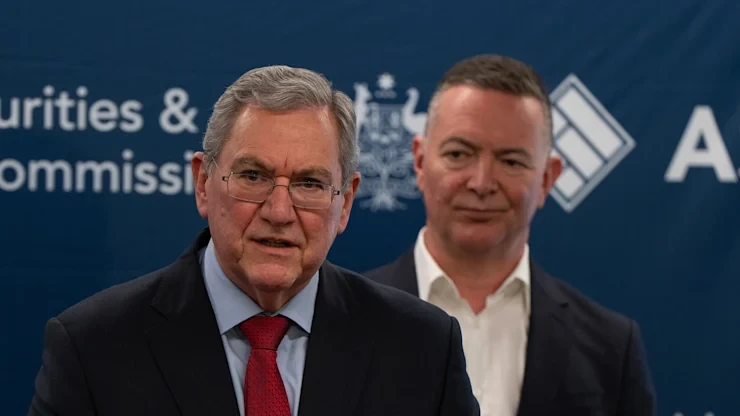ASIC Urges CBA to ‘Do the Right Thing’ Over Refund Denial

The corporate watchdog is encouraging the Commonwealth Bank to reconsider its position on refunding fees paid by low-income clients, after the bank refused to make additional refunds following a regulatory investigation into exorbitant costs.
In increasing pressure on the country's largest bank, the Australian Securities and Investments Commission evoked the "pub test," a term commonly used in political discussion, and warned it could take legal action.
On Tuesday, ASIC said that banks would reimburse $60 million to low-income consumers receiving government concession payments who had high-fee bank accounts despite being eligible for lower-cost products.
ANZ Bank will pay an estimated $47.9 million in the most recent round of refunds, followed by Westpac, which has committed to paying back more than $9.9 million. National Australia Bank was excluded from ASIC's review because it has not charged dishonour, account-keeping, or overdraft fees on transaction accounts since 2014.
Unlike Westpac and ANZ, CBA has refused to give refunds over this issue, claiming that the fees in question were disclosed to consumers and imposed in compliance with their terms and conditions. The bank, which has the most household clients among the big four, stated that its government concession payment customers were a broad mix of people with varying levels of income, savings, and home ownership.
In response, ASIC increased pressure on the bank on Tuesday. Joe Longo, the regulator's chair, advised the banking behemoth not to take a legalistic approach and warned that if no progress was made, the watchdog would consider a more "court-based" approach.
"If ASIC is compelled to revisit a court-based approach to solving that problem, then that's a matter for the commission and we will look at that in the time to come," he told the media during a Sydney press conference.
"But the real point for this morning's purposes is that, is it a good use of public resources to expect the regulator to go after a major bank on this kind of topic when every other major bank is doing the right thing?"
"I believe our approach for today is to tell the CBA to reconsider its position and do the right thing." "Do not be legalistic."
When asked if ASIC had legal grounds to take court action against the bank if it failed to pay refunds voluntarily, Longo declined to comment further.
ASIC commissioner Alan Kirkland joined Longo in calling CBA's decision "very disappointing."
"The CBA's attitude contrasts sharply with those of other banks, including ANZ, which has issued refunds totaling approximately $48 million. It is very clear what is appropriate for CBA to do for its clients, and they now have the opportunity to reflect on where they stand in comparison to other banks and do the right thing," he added.
When questioned if the fees were illegal or immoral, Kirkland responded, "These fees certainly fail the pub test. It is not acceptable in the community or the eyes of ASIC for people with low incomes to be paid fees that are inappropriate for them."
Following ASIC's comments, CBA issued a revised statement stating that it would consider paying certain goodwill payments, but emphasized that the fees had been disclosed to clients and imposed by the terms and conditions.
"Where customers have incurred unusually high fees, we will consider goodwill adjustments where appropriate, while continuing to provide access to lower-fee options," a spokesperson for the bank confirmed.
ASIC's most recent report on bank costs paid by customers receiving government concession payments expands on last year's study, which focused on the negative impact of bank fees on low-income consumers, including First Nations clients.
CBA cited $25 million in "goodwill payments" to Indigenous concession customer accounts in response to an earlier ASIC report.
In December, CBA gave in to public and political pressure and halted a contentious plan that would have resulted in approximately 50,000 additional customers paying a $3 fee to withdraw cash from branches early in the new year.
The bank attracted widespread criticism after stating that it would terminate 1 million Complete Access accounts and transition those clients to its main transaction product, Smart Access. The Smart Access program includes a $3 fee for "assisted withdrawals," such as those made through a branch or by phone banking.